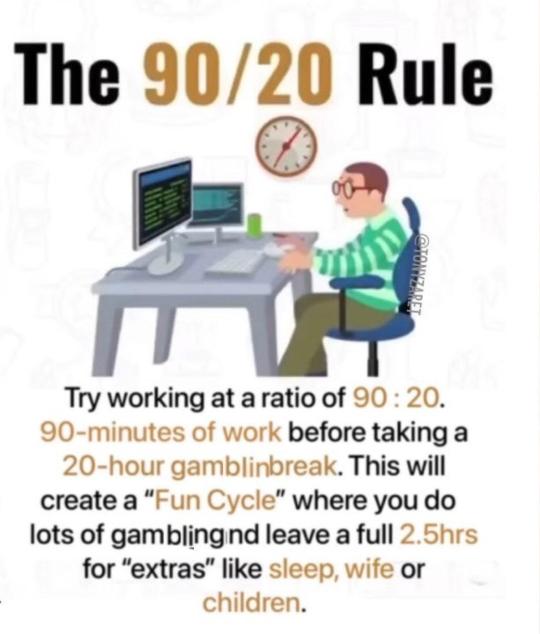#CW: Gambling
Text

Dwarrowtober day 25: Betrayal
Someone tattled to the dwarrowdams in Erebor, and the secret dwarfling gambling ring run by the young prince Dís was busted as a result.
Prompt list below:
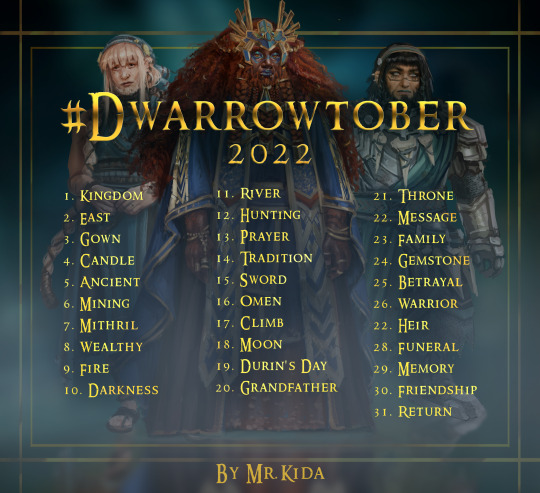
#my art#dwarrowtober#dwarrowtober 2022#dwarrowtober day 25: betrayal#erebor#durin's folk#longbeards#Dís#you can tell who Dís is lmao#tolkien#lotr#the lord of the rings#the hobbit#silmarillion#the rings of power#trop#dwarves#dwarflings#dwarrowdams#short comic#one page comic#ereborian life#cw: gambling#Mr.Kida Tolkien AU
219 notes
·
View notes
Text
I was at the casino with my aunt yesterday and she asked me to save her seat for her.
Me: “Yeah! If anyone tries to take your seat, I will bite them.”
When she came back, I was like: “I’m kinda disappointed. No one tried to take your chair.”
Her: “you really wanted to bite someone, huh?”
Me: “yeah! I got good chompers and it’s a shame to not use them.”
She left her machine quite a few times (it was doing pretty decent and she wanted to cash her tickets) and each time I told her that I would bite anyone who tried to take her machine from her.
After about five times, I was like “this is fucking bullshit! I’m a feral emotion support gremlin and I deserve to be able to chomp! No one wants to challenge the chair being turned around and my teeth crave flesh.”
Her, blinking: “want me to give you one more chance?”
Me, brightening: “yes, please!”
#personal#cw: gambling#kind of?#cw: casino#cw: cussing#I just wanted to BITE#lemme chomp#prob will delete later
8 notes
·
View notes
Text
Psychopathology, Ch. 8 notes
{Note: I really do not like the term “substance abuse” because I think it’s weird to equate your personal health choices, even if they are self-destructive, with abuse. That’s the term I need to know and use for my upcoming exam, so it’s used throughout this post, but I’d like to avoid it when I can. Having a drug problem is hard on you and often hard on the people around you, but it doesn’t make you an abuser.}
I.
Identify the major types of substance-related disorders in the DSM-5 and describe their key features.
The DSM-5 classifies substance-related disorders in two major diagnostic categories: substance-induced disorders and substance use disorders.
Substance-induced disorders: a category of substance-related disorders induced by using psychoactive substances.
Substance intoxication: a type of substance-induced disorder characterized by repeated episodes of intoxication.
Substance withdrawal: a type of substance-induced disorder characterized by a cluster of symptoms following the sudden reduction or cessation of use of a psychoactive substance after physical dependence has developed.
Tolerance: physical habituation to a drug in which frequent use leads to higher doses being needed to achieve the same effects.
Withdrawal syndrome: a cluster of physical and psychological symptoms that arises following abrupt withdrawal from use of a psychoactive substance.
Substance use disorders: substance-related disorders characterized by maladaptive use of psychoactive substances, leading to significant impairment of functioning or personal distress.
Describe nonchemical forms of addiction or compulsive behavior.
Patterns of compulsive behavior, such as compulsive gambling and shopping, and perhaps even excessive Internet use, may represent non-chemical forms of addiction. These behavior patterns are associated with classical signs of drug dependence or addiction, including impaired control over the behavior & withdrawal symptoms, such as anxiety or depression upon abrupt cessation of use.
{Note: I’m skeptical about calling compulsive behavior patterns “addiction”, because I think those behavior patterns are probably a symptom of something else, but compulsive substance use is ALSO usually a symptom of something deeper, so maybe it’s an accurate label. If we’re going to use this schema of “non-chemical addiction,” I hope that it leads to less stigma around compulsive drug use, not more stigma around compulsive behavior (because of association with addicts).}
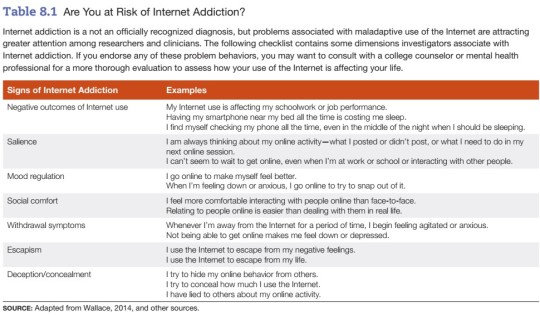
Explain the difference between physiological dependence and psychological dependence.
Physiological dependence: bodily changes resulting from regular use of a drug, as denoted by the development of tolerance and/or a withdrawal syndrome (also called “chemical dependence”).
Addiction: impaired control over the use of a chemical substance, despite the harmful consequences it causes.
Psychological dependence: compulsive use of a substance to meet a psychological need.
Identify common stages in the pathway to drug dependence.
1. Experimentation: During this stage, the drug temporarily makes users feel good, even euphoric. Users feel they are in control and believe they can stop at any time.
{Note: at this stage, they probably are and they probably can!}
2. Routine use: During the next stage, a period of routine use, people begin to structure their lives around the pursuit and use of drugs. Denial plays a major role at this stage, as users mask the negative consequences of their behavior to themselves and others. Values change. What had formerly been important, such as family and work, comes to matter less than drugs.
{Note: it’s difficult to stop at this stage, unless you catch yourself early, but you can probably quit cold turkey here.}
3. Addiction/dependence: Routine use becomes addiction or dependence when users feel powerless to resist drugs, either because they want to experience their effects or to avoid the consequences of withdrawal. Little or nothing else matters at this stage.
{Note: it’s very difficult to stop at this point and you may not survive quitting cold turkey; you would want help at this stage, even if you rejected help during the previous one.}
II.
Describe the effects of depressants and the risks they pose.
Depressant: a drug that lowers the level of activity of the central nervous system.
- effects include intoxication, impaired coordination, slurred speech, and impaired intellectual functioning
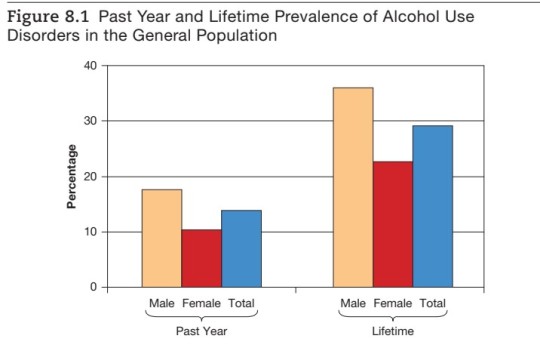
Alcoholism: alcohol addiction or dependence resulting in serious personal, social, occupational, or health problems.
- Chronic alcohol abuse is associated with health risks, including Korsakoff’s syndrome, cirrhosis of the liver, fetal alcohol syndrome, and other physical health problems.

* Risk Factors for Alcoholism *
1. Gender
2. Age
3. Family history
4. Sociodemographic factors
5. Antisocial personality disorder
Barbiturates: sedative drugs that are depressants with high addictive potential.
- used medically for short-term relief of anxiety and treatment of epilepsy, among other uses
- can impair driving ability and can cause a fatal overdose, especially when combined with alcohol
Narcotics: drugs that are used medically for pain relief but also have strong addictive potential.
Endorphins: natural substances that function as neurotransmitters in the brain and are similar in their effects to opioids.
Morphine: a strongly addictive narcotic derived from the opium poppy that relieves pain and induces feelings of well-being.
Heroin: a narcotic derived from morphine that has strong addictive properties.
Describe the effects of stimulants and the risks they pose.
Stimulants: psychoactive substances that increase the activity of the central nervous system.
- Repeated use of nicotine (a mild stimulant found in tobacco) leads to physiological dependence.
Amphetamines: a class of synthetic stimulants that activate the central nervous system, producing heightened states of arousal and feelings of pleasure.
Amphetamine psychosis: a psychotic state characterized by hallucinations and delusions, induced by ingestion of amphetamines.
Cocaine: a stimulant derived from the leaves of the coca plant.
- Habitual cocaine use can lead to a variety of health problems, and an overdose can cause sudden death.
Crack: the crystallized, smokeable form of cocaine.

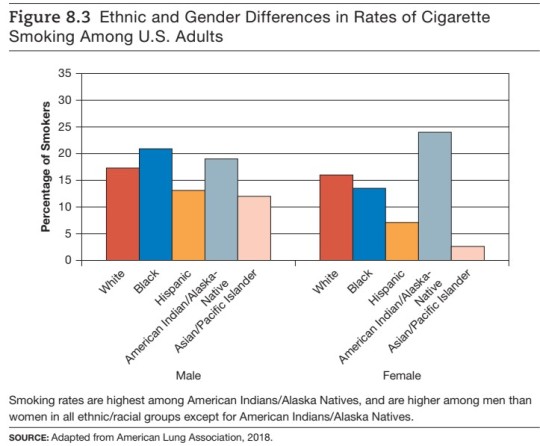
Describe the effects of hallucinogens and the risks they pose.
Hallucinogens: substances that distort sensory perceptions cause hallucinations.
- category includes LSD, psilocybin, and mescaline
- other drugs with similar effects include cannabis and phencyclidine; the latter can induce a state of mental confusion or delirium
- Hallucinogens do not lead to physiological dependence, but psychological dependence may occur.
- There are concerns about potential brain damage impacting learning & memory in heavy users of marijuana. {note: the studies I’ve seen on this topic indicate that using marijuana frequently starting in your teens/early 20’s has this impact, but it might not have the same effect if a person starts later in life. I’d be curious to know whether or not that’s true.}
Marijuana: a hallucinogenic drug derived from the leaves and stems of the plant Cannabis sativa.
III.
Describe biological perspectives on substance use disorders and explain how cocaine affects the brain.
The biological perspective focuses on uncovering the biological pathways that may explain mechanisms of physiological dependence. The biological perspective spawns the disease model, which posits that alcoholism and other forms of substance dependence are disease processes. Cocaine blocks the reuptake of dopamine by the transmitting neuron, which means that more dopamine remains in the synaptic gap, creating a euphoric high by overstimulating receiving neurons in brain networks that regulate feelings of pleasure.
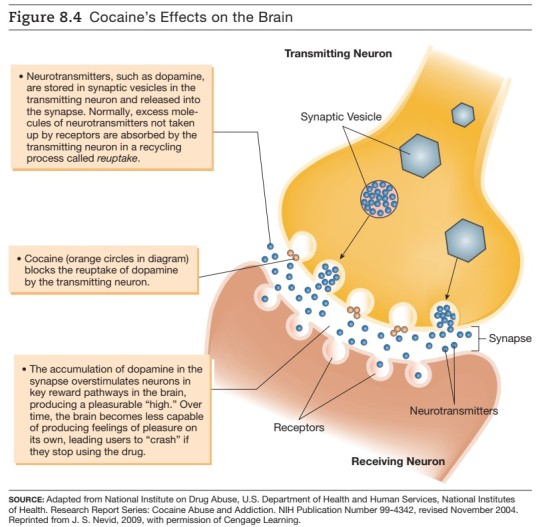

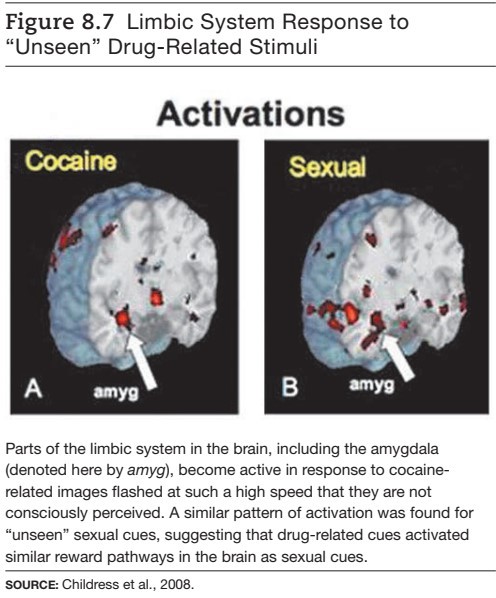
Describe psychological perspectives on substance use disorders.
A. Learning Theory Perspectives: view problems with substance abuse as learned patterns of behavior.
- operant conditioning
- alcohol and tension reduction
- negative reinforcement & withdrawal
- the conditioning model of cravings
- observational learning
B. Cognitive Perspectives: focus on roles of attitudes, beliefs, and expectancies in accounting for substance use/abuse.
C. Psychodynamic Perspectives: view problems of substance abuse, such as excessive drinking and habitual smoking, as signs of an oral fixation.
D. Sociocultural Perspectives: emphasize the cultural, group, and social factors that underlie patterns of drug use, including the role of peer pressure in determining adolescent drug use.
IV.
Identify biological treatments of substance use disorders.
Detoxification: the process of ridding the system of alcohol or other drugs under supervised conditions.
- Disulfiram
- Smoking cessation drugs
- Nicotine replacement therapy
Methadone: a synthetic opiate that does not produce a pleasurable high when used properly, but which can avert withdrawal symptoms in people with heroin addiction when they stop using heroin.
Naltrexone: a drug that blocks the high from alcohol as well as from opiates.
Identify factors associated with culturally sensitive approaches to treatment.
- using counselors from a person’s own ethnic group
- providing social support
- incorporating culturally specific values and indigenous forms of healing in the treatment program
- drawing upon clergy and church members
Identify a non-professional support group for people with substance use disorders.
A leading example is Alcoholics Anonymous, which promotes abstinence within a supportive group setting. {Note: I’m aware AA is controversial; some people love it and say it saved their life. Other people say it’s a cult and it got in the way of their recovery. I have no experience with AA either way, so I’m open to hearing everyone’s perspectives on them.}
Identify two major types of residential treatment facilities for people with substance use disorders.
Residential treatment approaches include hospitals that provide specialized services for substance abusers and therapeutic residences in the community.
Describe the psychodynamic treatment of substance abusers.
Psychodynamic treatment focuses on uncovering and working through the inner conflicts originating in childhood that may lie at the root of substance abuse problems.
Identify behavioral approaches to substance use disorders.
A. Self-control strategies
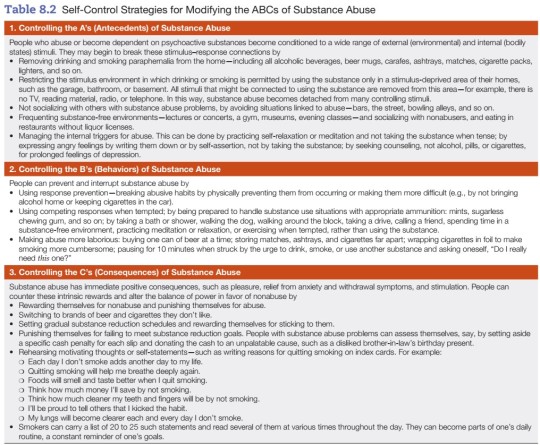
B. Contingency management programs
C. Aversive conditioning
D. Social skills training
E. Controlled drinking: a viable goal?
Describe relapse-prevention training.
Regardless of the initial success of a treatment technique, relapse remains a pressing problem in treating people with substance abuse problems. Relapse-prevention training employs cognitive behavioral techniques to help recovering substance abusers cope with high-risk situations and prevent lapses from becoming relapses by interpreting lapses in less damaging ways.
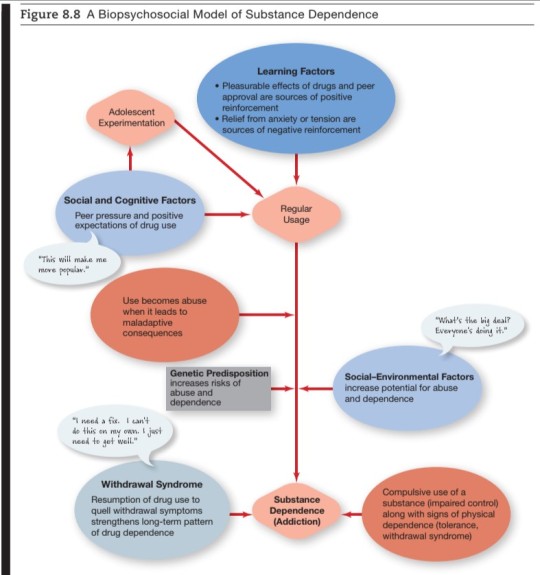
V.
Describe the key features of gambling disorder.
Gambling disorder: an addictive disorder characterized by a pattern of habitual gambling and impaired control over the behavior.
- frequently comorbid with substance use disorders and mood disorders
Describe ways of treating gambling disorder.
Promising treatment approaches for compulsive gambling have been developed, including anti-depressants and mood-stabilizing drugs and cognitive behavioral therapy, which is used to correct cognitive biases that may contribute to compulsive gambling. Many compulsive gamblers participate in peer support groups, such as Gamblers Anonymous, that help them gain insight into their self-defeating behavior and change their compulsive behavior patterns.
#abnormal psychology#psychopathology#psychology#my notes#study blog#cw: drugs#cw: gambling#cw: alcohol#cw: smoking#cw: death#cw: addiction
2 notes
·
View notes
Text


IMAGINE AVENTURINE WHO...
(cw: kakegurui au, obsessive gambling, life and death situation/predicament, aventurine's obsessed, unhealthy power dynamic/s between both sides, possessiveness, yandere behavior)

... is well known in Penacony as one of the elite gamblers. AVENTURINE doesn't take a simple bet and runs with it, but makes it clear that if you ever play a game against him, he'll take it up to 10 notches.
... is called the 'compulsive gambler of Penacony', where students shiver at the mention of his name. Often, whoever gambles with him is met with a terrible end, citing that being near him is akin to a death wish with how possessed he acts.
... only desires a challenge. He dislikes gambling for the sake of money or power— he has enough and wants to spend it all until the day he dies. All he wants is the thrill, the one that would push him to the edge, constantly seeking for more.
... is an adrenaline junkie and makes those who goes against him rot in debt, becoming housepets in his journey of finding the one, but he had no luck. A shame, as he's a skilled gambler with many tricks and lady luck constantly gazing on his shoulder— until he met you.
... found you intriguing when you played a game of Craps, and although the stakes were rigged and against you, a newbie, you swept the floor with them and exposed them for their crimes. AVENTURINE found it more amusing when you stated, plain as day, "Those house pets of yours are going to need their lives back when they realize it's been rigged from day one."
... asked the other elites and even the president himself, SUNDAY, if he's ever heard of you. To his surprise, it was like no one has, and SUNDAY comments that AVENTURINE may be up to someone that doesn't exist anywhere. Not in the records, outside, or even the entirety of the country.
... began to become the regular of your regulars; who saw you in your games with others. He saw you win on them, exposing how they have seamlessly won those games despite it being against your favor, and turning it on their heads.
..., after studying your behavior and mannerisms, approached you for a little gamble. It isn't much, as all he wants is simply see what makes you tick.
... leads you into his office and you both take your seats, two sets of cards set in front of you. He even told you that the game you two will be playing is Blackjack— a staple of Penacony, he jokes, but you two know it's a lie.
... tells you that if you win, he'll let you in to the Elites and convince SUNDAY to stop pursuing your missing records. Everyone has been itching to get you to fall from grace, and he isn't letting them get their grimy hands onto your pretty face. Not if he has a say in it. However...
... tells you that if he wins, he'll have you as his personal housepet: a trophy to signify that you have fallen for a man that's feared by many.
... watches with a smile as the cards were taken from both sides, eagerly awaiting for the final verdict between you.
... knew it was only one round. Who knew he only has one chance to finally claim what is his.
... chuckles when he sees the results, his eyes gleaming with the sense of pride— to his loss or yours, no one shall ever know.

@.yxstxrdrxxm | do not republish or repost my works anywhere | 2024

#🀧 ;; catalogued by black swan#yandere honkai star rail#yandere#yandere hsr#hsr#honkai star rail#yandere thoughts#yandere imagines#yandere aventurine#yandere hsr aventurine#hsr aventurine#honkai star rail aventurine#yandere x reader#yandere male#tw yandere#yandere boy#cw gambling#star rail#aventurine honkai star rail#aventurine hsr#star rail aventurine#aventurine x reader#yandere drabble#yandere writing#yandere scenarios
488 notes
·
View notes
Text
is this going to get me taken down


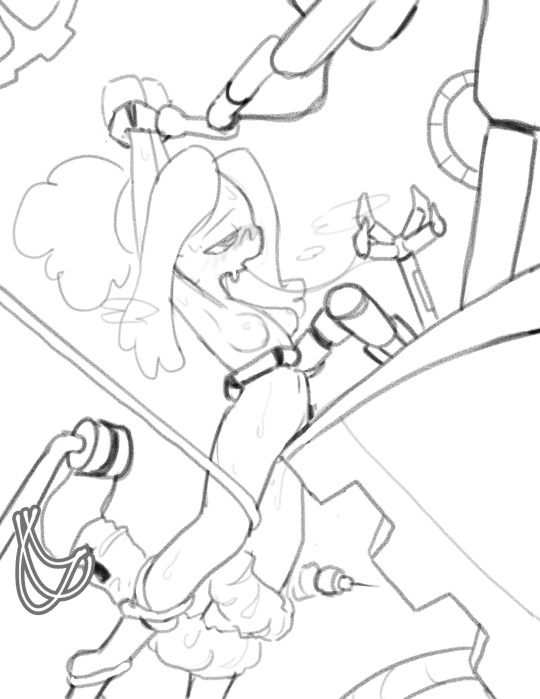
#robotfucker#mechanophilia#cw suggestive#significantly more than suggestive actually#im really gambling with this one. spare me tumblr#objectum
553 notes
·
View notes
Text
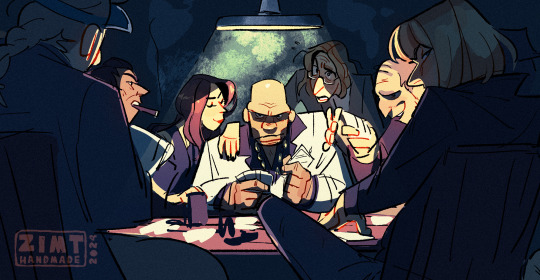
Sit Down.
-----
My other socials
Commission Info
Let's drink some Ko-Fi! 🍵
#death note#fanart#mafia#sit down#mello#mihael keehl#rocket rick#rocketrick#risikofaktorraketenrick#rod ross#dwight godon#kal snyder#jack neylon#cw smoking#cw gambling#sketch#my art#gang#gangster#dn au 2.0
322 notes
·
View notes
Text
1K notes
·
View notes
Text
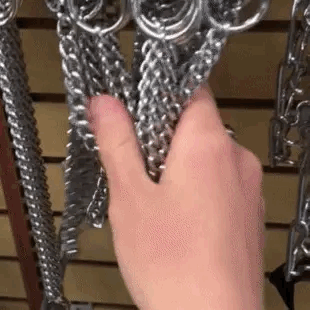
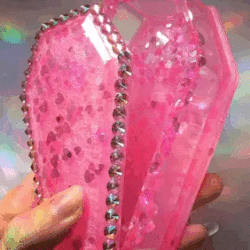
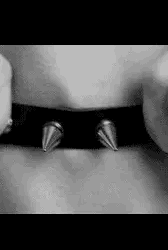
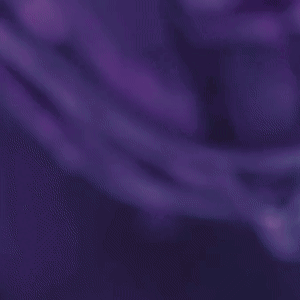
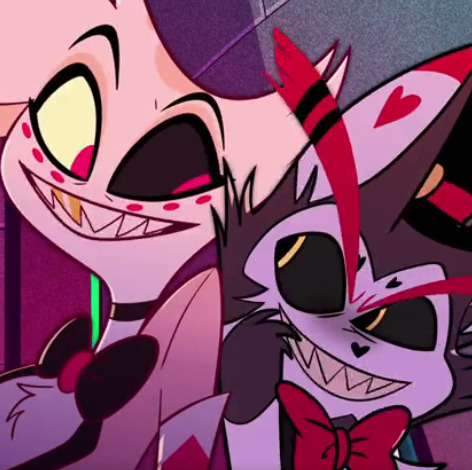


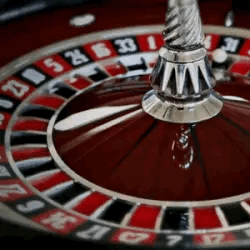

Huskdust stimboard
x x x - x 🕸️🦇 x - x x x
#huskdust#huskerdust#husker hazbin hotel#husker x angel dust#hazbin husker#husk hazbin hotel#hazbin hotel husk#hasbin hotel#angel dust#stim#stimmy#stimboard#visual stim#stimblr#stimming#poker stim#cw alcohol#cw gambling#pink#purple#black#red
251 notes
·
View notes
Text
Just seen a gambling ad which calls gambling ‘the UK’s biggest side hustle’ if you want a glimpse into the fucking horrible society we live in.
244 notes
·
View notes
Note
do you have any casino favicons ? (like cards or dice or anything like that)









Don't gamble, kids.
#favicons#gambling cw#carrd resources#rentry resources#web graphics#pixels#pixel graphics#casino#dice#cards
261 notes
·
View notes
Text
309 notes
·
View notes
Note
how about a stimboard with the giga spamton neo sprite ? :D so the theme would be all purpley
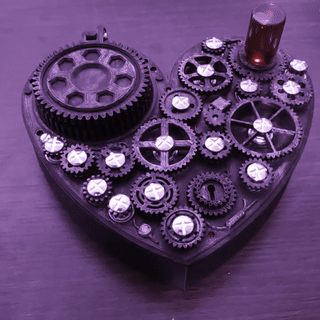


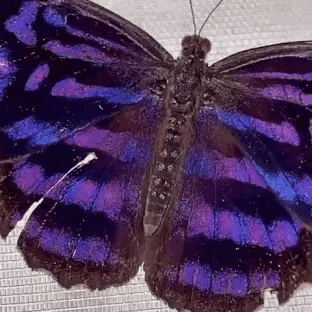





Giga Spamton Neo stim board!!!
x x x
x :) x
x x x
#deltarune#stim board#spamton#spamton deltarune#spamton g spamton#spamton neo#giga spamton#giga spamton neo#purple stim#computer stim#glow stim#purple glow stim#wing stim#butterfly stim#bird stim#space stim#tech stim#machine stim#❤️deltarune stim#❤️character stim#❤️requested stim#tw bright lights#tw bright colors#flashing lights#tw gambling#cw gambling
89 notes
·
View notes
Text
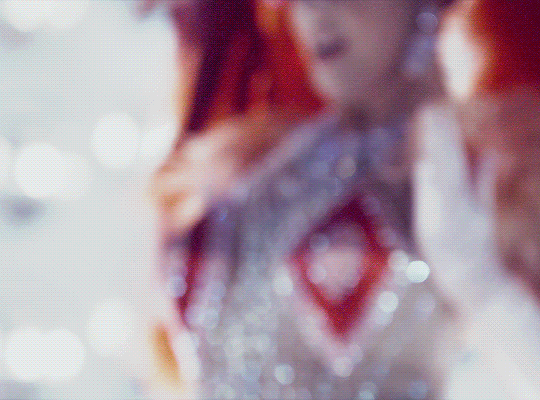
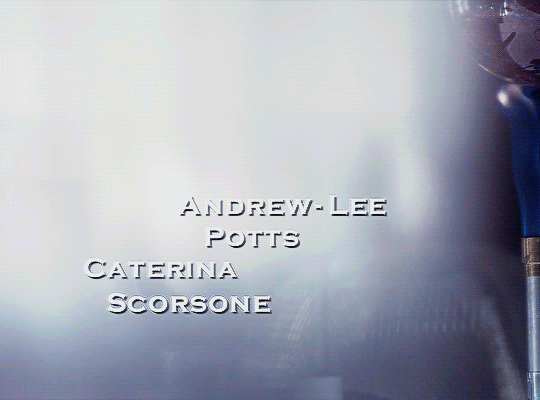
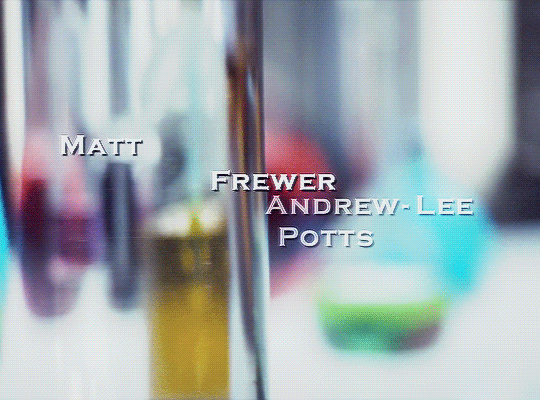
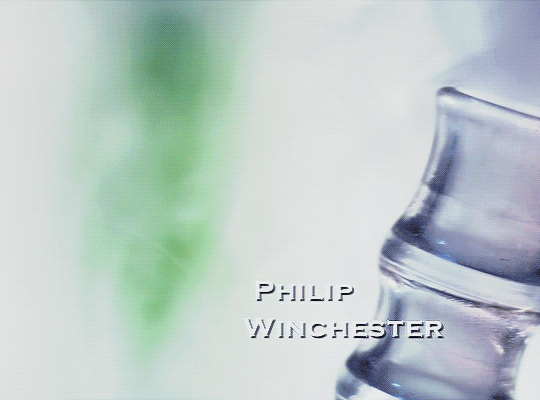


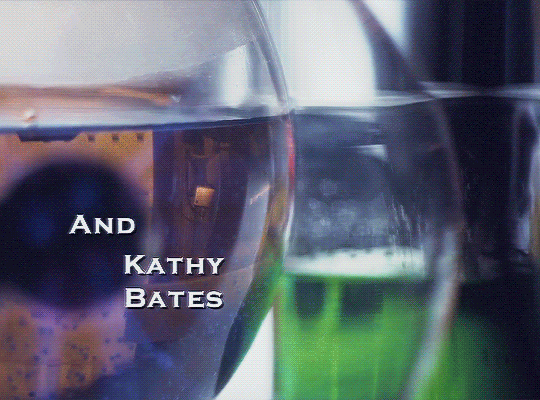
Alice (2009) Opening Credits.
#syfyaliceedit#syfy alice#aliceedit#aiwedit#alice 2009#alice#alicesyfyedit#alice2009edit#filmedit#miniseriesedit#alice2009#alicesyfy#alice syfy#alice miniseries#tvgifs#dailytvfilmgifs#tvandfilm#syfy's alice#please don't add to gif hunts/claim as your own/edit without permission. thank you!#gambling cw#mine.
70 notes
·
View notes
Text
hello.
pantalone w/ a younger sibling!reader (or older.... but that changes the plot slightly!) who runs the most popular chain of casinos in teyvat. shockingly, pantalone doesn't chide or chastise them or look down upon them for their choices. he encourages it, actually.
the house, his darling younger sibling, always wins. and his rivals always wind up in further debt because of them <3 even if they lose, ultimately, they still win. it's a fucked up game rigged in their favor, but really, is that not how all casinos work?
he can't be mad that they're supporting him the only way they know how... well, it's not the only way they know how, but they're supporting him with what they're best at. and he can't really be mad, not really--every time he looks at his sibling, he is reminded of how they really are cut from the same cloth as him.
#aphelion speaks 🌸#cw gambling#tw gambling#HEAR ME OUT THIS DYNAMIC IS SO.#pantalone who is downright possessive of his wealth#and then his younger sibling who is... not!#but both siblings share that suffocating air of arrogance. one look at [name] and it's SO obvious who they're related to +#+ based on their attitude alone.#they're not cheating in any way and they get annoyed when people suggest it. they're just really good. +#+ they lose sometimes too... sometimes. they're just a good strategist with an even better poker face. just like their brother fr
93 notes
·
View notes
Text
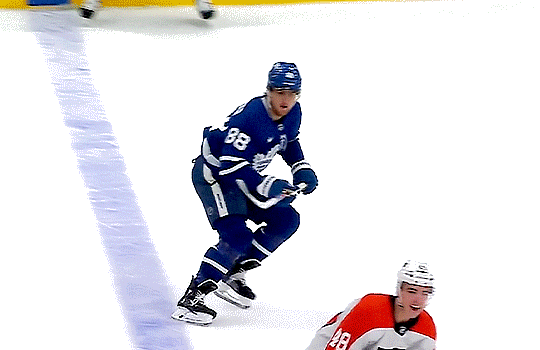


[240215 tor vs. phi] william nylander takes a pass from timothy liljegren and wins the game in overtime for the leafs; toronto defeated the flyers 4-3
#william nylander#timothy liljegren#max domi#toronto maple leafs#maple leafs#leafs#nhl#hockey#meg.gif#meg.leafs#meg.all#playbook#hiiii my perfect boy#so sorry about the quality of these. i do what i can w the files i have. kl;jafjlafk#the milk and pizza pizza sponsorships do kill me adsfkjjkl;dsaf#at least they're not gambling sites though#eyestrain cw
40 notes
·
View notes
